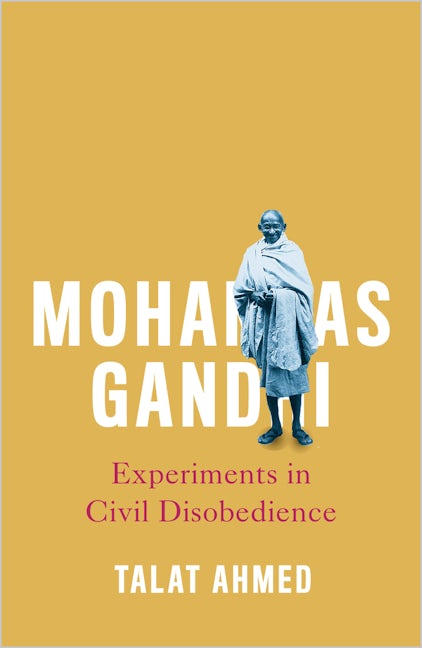
This biography examines his campaigns from South Africa to India to evaluate the successes and failures of non-violent resistance. Seventy years after his death, his legacy remains contested: was he a saint, revolutionary, class conciliator, or self-obsessed spiritual zealot?
The contradictions of Gandhi’s politics are unpicked through an analysis of the social forces at play in the mass movement around him. Entrusted to liberate the oppressed of India, his key support base were industrialists, landlords and the rich peasantry. Gandhi’s moral imperatives often clashed with these vested material interests, as well as with more radical currents to his left.
Today, our world is scarred by permanent wars, racism and violence, environmental destruction and economic crisis. Can non-violent resistance win against state and corporate power? This book explores Gandhi’s experiments in civil disobedience to assess their relevance for struggles today.
Talat Ahmed is Lecturer in South Asian History at the University of Edinburgh. She is a Fellow of the Royal Asiatic Society and the author of Mohandas Gandhi: Experiments in Civil Disobedience (Pluto, 2018) and of a study of the All-India Progressive Writers' Association entitled Literature and Politics in the Age of Nationalism: The Progressive Episode in South Asia, 1932-56 (Routledge, 2009).
Illustrations
Acknowledgements
Glossary
Maps
Introduction
1. Early Life: 1869–93
2. South Africa and the Birth of Satyagraha: 1893–1915
3. The Champion of the Oppressed Returns: 1915–19
4. Nationalist Leader: 1919–29
5. Global Icon: 1929–39
6. Fascism, War, Independence and Partition: 1939–48
Conclusion: Assassination and Legacy
Notes
Index
eBook ISBN: 9781783715152
Read on any device

